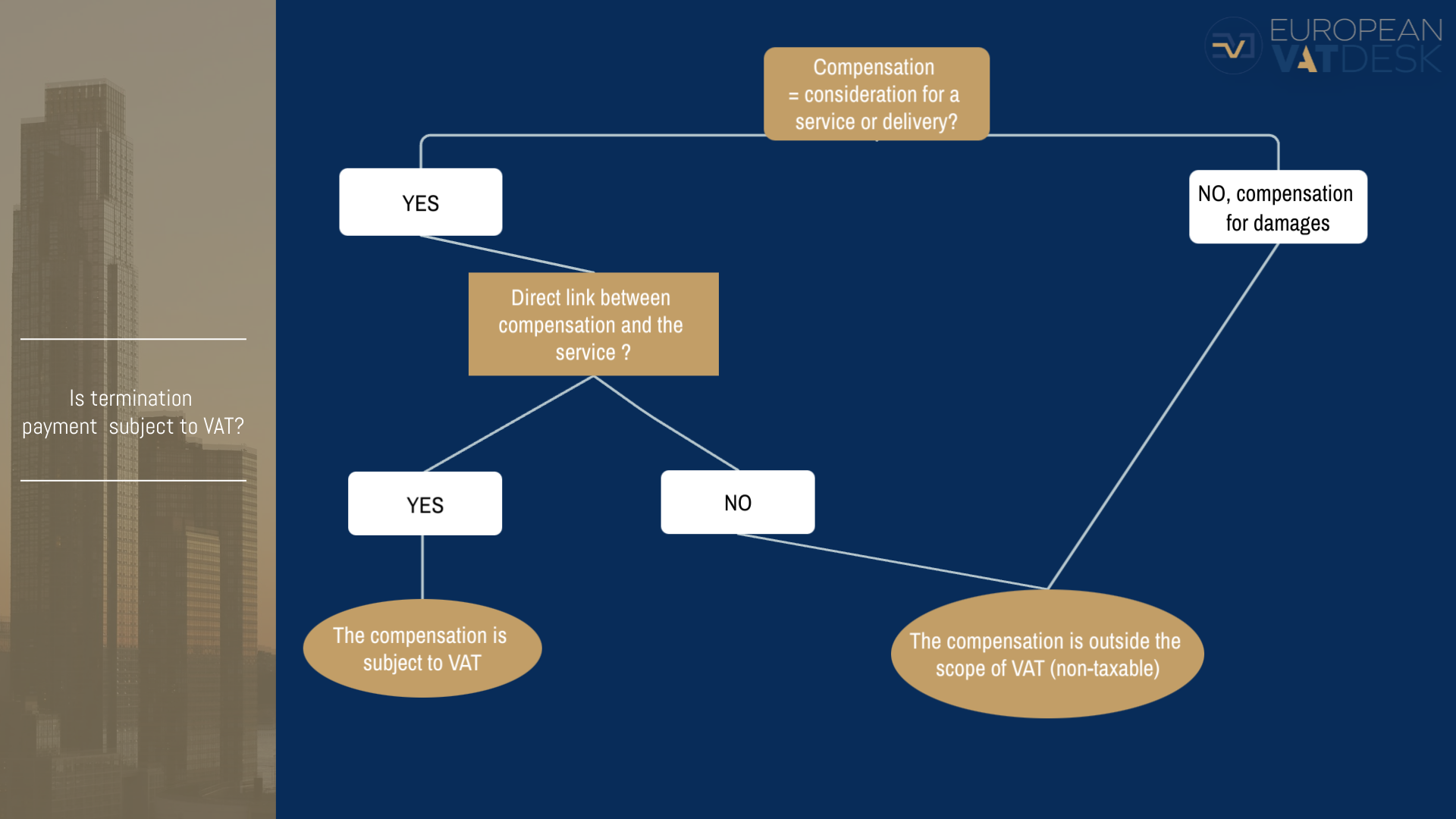The Author of the Article
There are numerous reasons for terminating a contract.
When one of the parties to a contract decides to terminate it early, it may be required to pay financial compensation to the other party. The question then arises on the application of VAT on this compensation (or not).
Let's take the case of a digital service provider who undertakes to create a customized platform for one of its customers. After a few stages of development, the client decides to terminate the project, alleging a change of strategy. The client contractually agreed to pay 20% of the outstanding balance as compensation, the sum being intended to cover all the losses suffered by the service provider. Is this amount subject to VAT? And what about the instalments already paid?
Another common example is a participant who buys a ticket for an event, then withdraws and asks for a refund. The organizer deducts a fixed fee and refunds the balance. The question is whether VAT applies to these compensation charges?
In short, in the event of breach of contract with compensation in one form or another, it is necessary to determine whether the amount is subject to VAT or, on the contrary, whether it is a compensation covering a loss suffered on which no VAT should be applied.
And the answer to this question is far from obvious.
The case before the Court
A contractor starts a real estate project worth €5,300,000. Shortly after the start of the works, the client decides to stop the project. The contractor then claims payment of the compensatory indemnity provided for in the contract in the event of early termination, amounting to approximately €1,500,000, which is much higher than the price of the services actually performed. Is VAT due on this termination indemnity even though the project was not carried out and was cancelled by the customer during the course of the project?
The case went all the way to the Court of Justice.
The Court's response
The Court considers that the sum thus contractually claimed by the contractor from his customer must be subject to VAT and recalls two principles:
- A supply of services is subject to VAT when reciprocal performances are exchanged, with the remuneration received by the supplier constituting the actual value of an identifiable service provided to the recipient. For this to be the case, there must be a direct link between the service provided and the consideration received.
- A direct link exists when the service is consumable by the customer, even if the customer decides not to consume it. Consequently, unless the service can be consumed by an identifiable customer, there can be no supply of goods or services subject to VAT.
In the Court's view, this direct link exists in the present case because the service provider had begun to provide the services in question and was prepared to carry them out to completion.

Divergent case law positions
It should be noted that the Court of Justice of the European Union has in the past taken the opposite view. In a landmark ruling (Case C-277/05), it held that the amount paid by a customer when cancelling a hotel reservation that had already been paid for constituted compensation for non-performance of a contract, and was therefore not subject to VAT. This ruling remains relevant, although many subsequent decisions depart from it. Should it now be regarded as an isolated ruling?
The expert's eye
The question of whether amounts claimed on termination of contracts should be subject to VAT is a complex one. European case law varies and there is therefore a degree of uncertainty on this issue. A careful examination of the economic and commercial reality of the transaction is needed to make an informed decision.